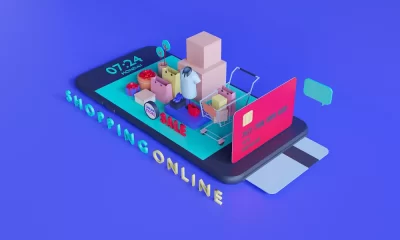Social Media
You May Not Be My Online Friend – But You Influence Me
I am growing weary of all this social media silly talk about trust and friendship as it applies to professional collaboration online.

I am growing weary of all this social media silly talk about trust and friendship as it applies to professional collaboration online. I have online “friends” in my knitting community and my travel community, for example, but my professional networks do not yield friendships in the real, down-and- dirty, share a beer or drive me to the airport at 5am kind of way.
What my social media peer group (SMPG) offers is a fruitful and productive idea exchange.I share experiences and thoughts with my SMPG about my work life and the situations I encounter on a professional basis. I also have a cadre of thought leaders I go to for new ideas and subject matter expertise in areas I don’t know about. This useful give-and-take helps me avoid missteps and brings new ideas to the table.Given the global nature of the internet, social media peer groups can be very far-reaching, with knowledgeable people around the world influencing each other about professional decisions.The opportunity is there for individuals and organizations to participate — in the right ways.
All too often, professional communities take their cues from consumer-facing social media sites and experiences. We have greater access to public, consumer-facing instances of social media, and thus try to adopt their practices for professional peer groups.I believe this is a real mistake.
The rules of engagement for professional networks are different.The presumption of trust and the goals of achieving trustful relationships on professional networks should be reexamined. The current model of striving for trust online in professional settings is fundamentally unachievable. Nothing in the world will replace a good old-fashioned face-to-face handshake or a business dinner, where stories can be shared and the gritty nuances of the project and the politics are revealed.This is how professional trust and intimacy develops.
In business, social credibility stems from expertise, accomplishments, battle scars and length of service in ones given profession.The credible people are those who have fought the good fight, won some and lost some, and have the stories to prove it. Voracious use of social media is no substitute for these badges of honor, no matter how actively one participates in an online dialogue. Lack of experience or know-how becomes ever more obvious when someone shares information without a solid foundation of understanding.In this new social economy, the currency of authority is deep knowledge.Enthusiastic participation does not always equal expertise in practice.
Companies that use social media to reach their professional audiences online — buyers and prospects — too often confuse trust with respect and influence. An organization has to educate and inform their audience about the firm’s position, products and services in the market place — not be their “friend.” Firms who endeavor to create a social media presence to attract new customers or retain existing ones should become invaluable to the buyer. By sharing ideas, case studies, thought leadership, industry trends and happenings, companies and individuals can insert themselves into the specific area of professional knowledge and help grow it. Offering specific knowledge and useful guidance is the foundation for building respect and influence, and for staying top-of-mind when the buyer has a service or product need.
The Dali Lama once said: “Share your knowledge, it is the way to achieve immortality.” To gain professional legitimacy online there must be a dedicated focus on sharing the knowledge that one person or a company has amassed over time, and letting that information help inspire or inform others. Even if a buyer never calls you back or orders your widget, you have helped shape how that buyer thinks about their industry and job, and they are more likely to recommend you to a peer. Though social means, you or your firm have influenced and earned the respect of that buyer. That’s worth a lot more than a “fan” badge or a place on a “friends” list.









